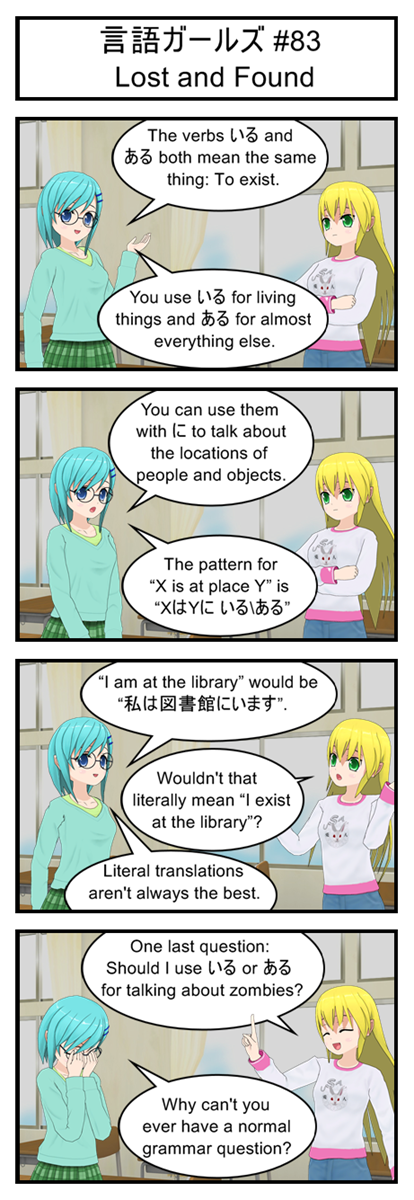
While “iru” and “aru” are probably most important for talking about locations they can be pretty useful all on their own too. Want to say “We have a problem?” Use “mondai ha aru” to say “A problem exists / There is a problem.”
Also, if anyone is actually curious I’m pretty sure you use “iru” when talking about zombies because they move around as if they were alive. This is also true for other semi-alive things like robots.
Transcript
言語ガールズ #83
Lost and Found
Blue: The verbs いる and ある both mean the same thing: To exist.
Blue: You use いる for living things and ある for almost everything else.
Blue: You can use them with に to talk about the locations of people and objects.
Blue: The pattern for “X is at place Y” is “XはYに いる\ある”
Blue: “I am at the library” would be “私は図書館にいます”.
Yellow: Wouldn’t that literally mean “I exist at the library”.
Blue: Literal translations aren’t always the best.
Yellow: One last question: Should I use いる or ある for talking about zombies?
Blue: Why can’t you ever have a normal grammar question?